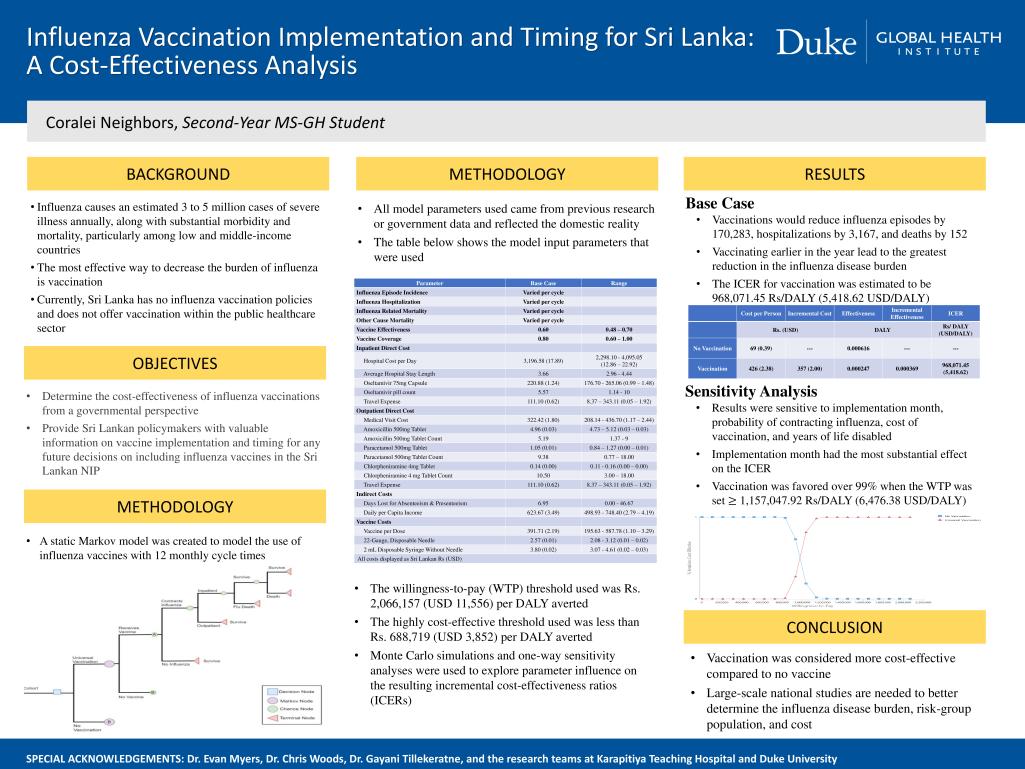Influenza Vaccination Implementation and Timing for Sri Lanka: A Cost-Effectiveness Analysis

Project member(s):
-
Coralei Neighbors
Dr. Evan Myers
Faculty mentor:
Community partners:
-
Teaching Hospital Karapitiya
- Feedback? Contact the team
Influenza Vaccination Implementation and Timing for Sri Lanka: A Cost-Effectiveness Analysis
Project overview
Influenza causes an estimated 3 to 5 million cases of severe illness annually, along with substantial morbidity and mortality particularly among low and middle-income countries (LMICs). In Sri Lanka, influenza caused the third-highest annual workdays lost for a health condition (1,605.45 days) and the third-highest annual cost (SLR 754,561.50, USD 5133) within a single company. The most effective way to decrease the burden of influenza is vaccination. Vaccination reduces influenza risk by 40-60% in the overall population and decreases the severity of those that contract influenza. Currently, Sri Lanka has no influenza vaccination policies and does not offer vaccination within the public healthcare sector.
With this study, we aim to determine the vaccination implementation strategy and timing that is most cost-effective regarding Sri Lanka. This outcome will allow us to create a national policy recommendation to provide the Sri Lankan Minister of Health with evidence to inform future influenza vaccination policies within the country's National Immunization Programme. The study's long-term goal is to reduce influenza-related mortality and morbidity by promoting government-funded influenza vaccination programs.
Media and resources
Last updated on June 26, 2023

